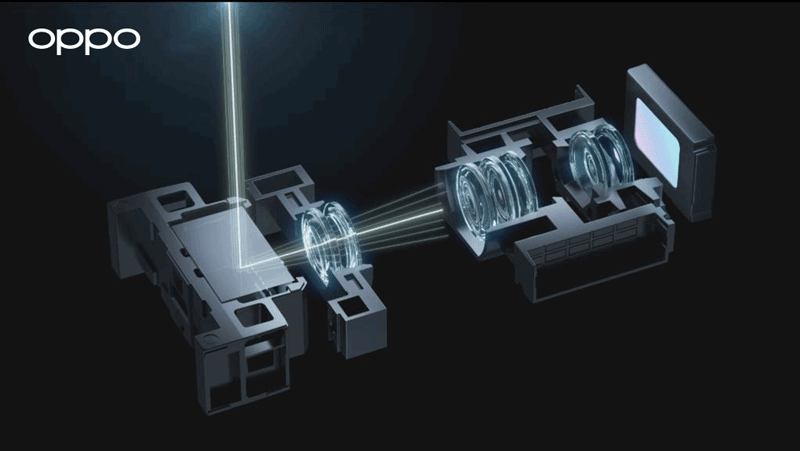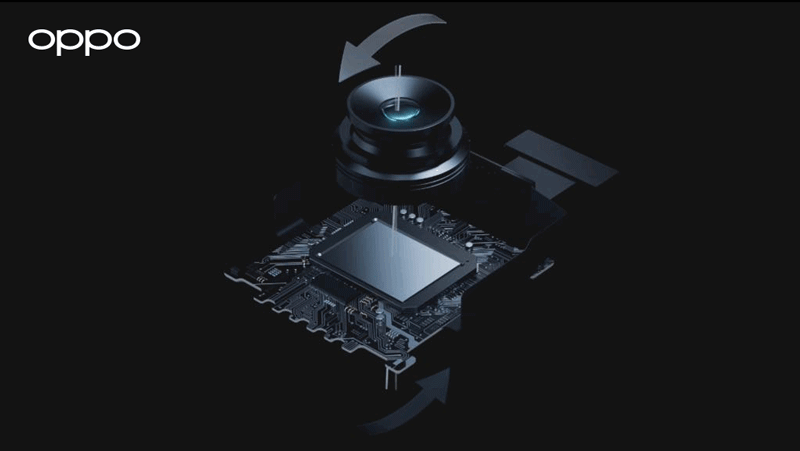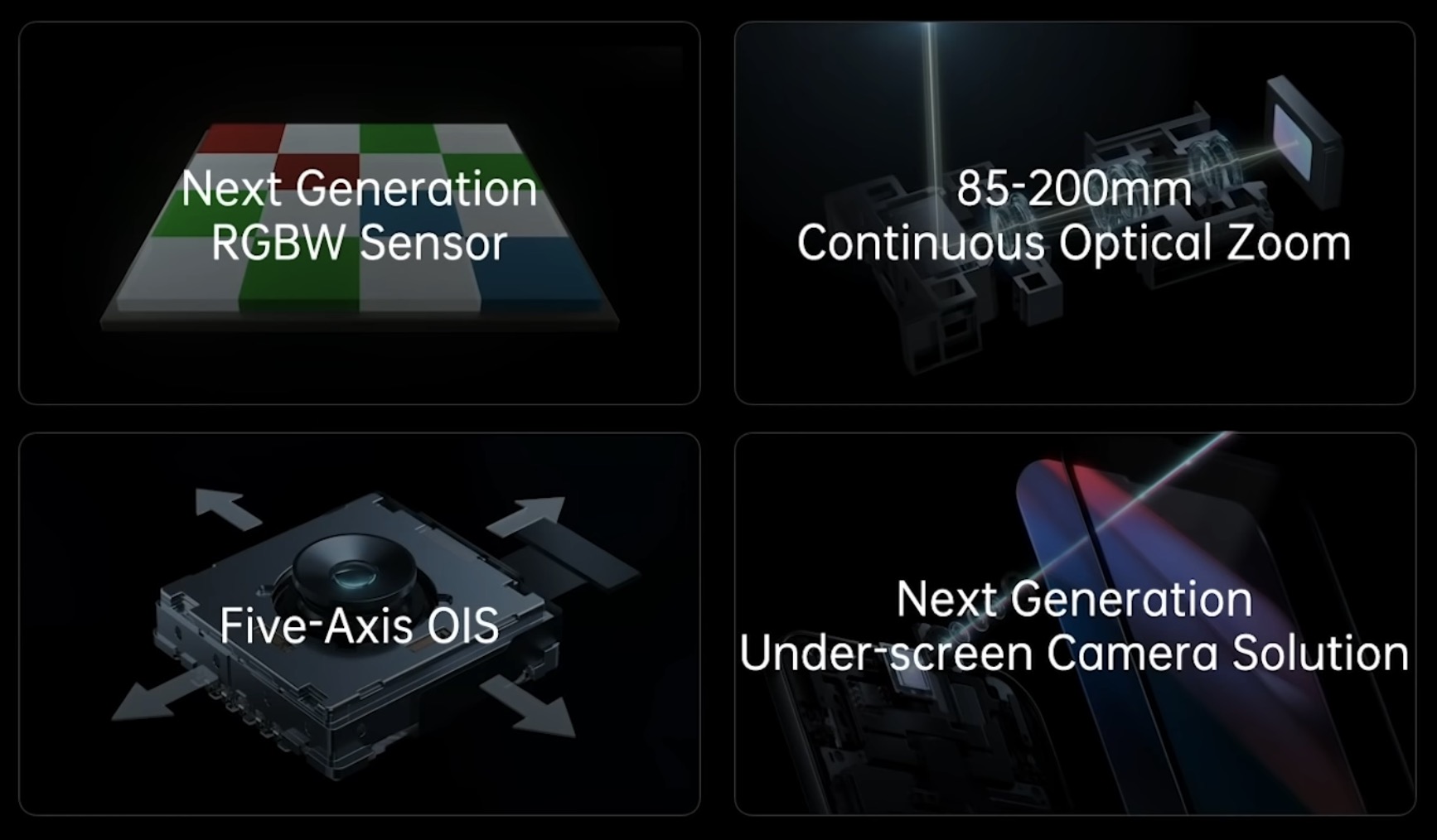OPPO had recently showcased a variety of new and improved imaging technologies for mobile devices during its Future Imaging Technology Launch Event earlier this week. Among those introduced is a new RGBW sensor, a continuous 85-200mm optical zoom camera module, and a five-axis optical image stabilisation (OIS) camera module.
First on the list is the next-generation RGBW sensor, which now features deep-trench isolation and a new self-developed algorithm known as Quadra pixel binning. These are aimed to reduce cross-talk and moiré during image captures – a flaw that existed in early generation RGBW technology. OPPO claims the sensor is also capable of capturing 60% more light than its predecessors, while also offering 35% reduction in noise.

Next up is the 85-200mm continuous zoom lens, which – as implied by its name – offers smoother transitions when switching between different zooming levels. This eliminates the jumping effect when switching between different focal lengths, which also causes white balance inconsistencies and frame cropping – an issue commonly found in current generation telephoto and periscope camera modules. To achieve this, OPPO says it has replaced the conventional ball-type motor with a new long-stroke guiding shaft motor solution that enables the interior optical components to move more precisely. Also introduced is the company’s own Prismatic OIS which uses the module’s prism to minimise vibrations and improve stability when shooting zoomed-in photos.

The last piece of mobile imaging innovation that was introduced by the company is the new five-axis optical image stabilisation camera module. Unlike current generation “gimbal-like” stabilisation technologies, this next generation OIS is claimed to offer a maximum stabilisation angle of ±3° and can shift in increments as small as 2μm – therefore further reducing any possible bumps and shakes when shooting photos or videos while moving, concurrently also improving their image quality and sharpness. OPPO added that the system will feature a proprietary correction algorithm as well, which enhances vibration compensation up to 65% when compared to previous generation OIS technologies.

Besides the three, the company also reiterated its updated under-display camera (UDC) technology as its fourth demonstration during the event. Basically, the presentation covered pretty much the same details that OPPO had already presented in a showcase that we’ve reported earlier this month.

So when are we expected to see these new innovations? According to the company, the new RGBW sensor is expected to debut in the fourth quarter of this year, while the five-axis OIS technology will arrive sometime in the first quarter of 2023. Unfortunately, it did not mention when exactly we will be seeing the 85-200mm continuous zoom and UDC technologies to be featured in future OPPO devices.
(Source: OPPO official website / Youtube)
Follow us on Instagram, Facebook, Twitter or Telegram for more updates and breaking news.



